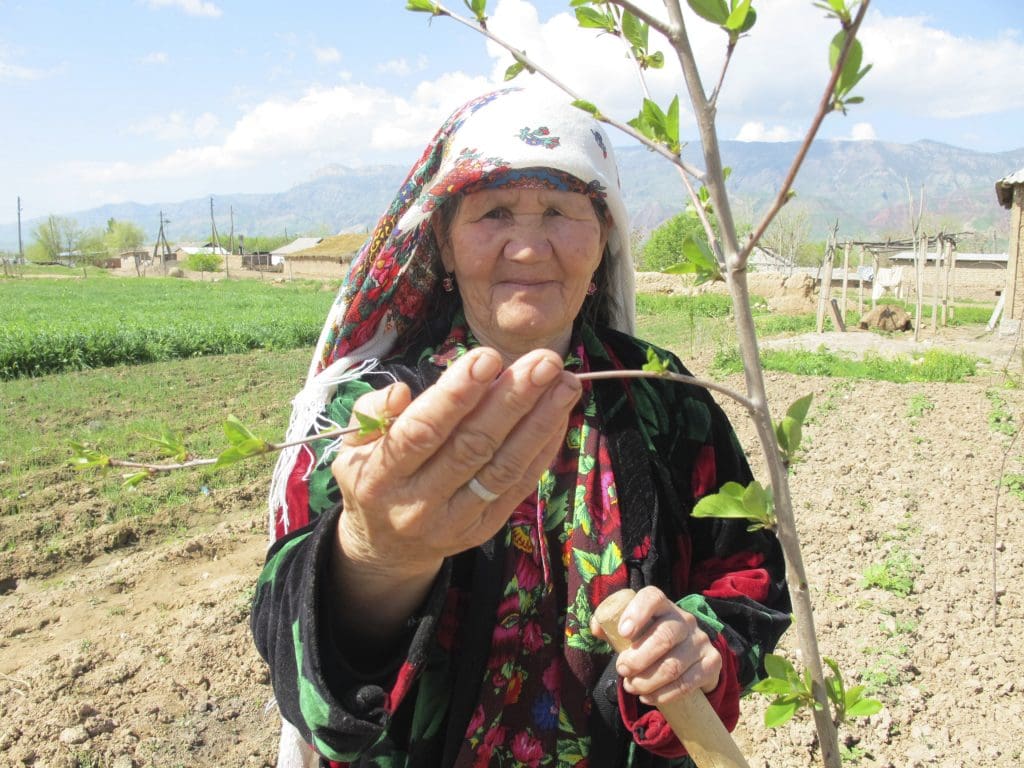WFP and Tajik Government Sign a MOU on Climate Change Adaptation

DUSHANBE – The United Nations World Food Programme (WFP) and the Agency for Forestry of the Republic of Tajikistan have signed a memorandum of understanding (MOU) to work together to build Government capacity to adapt to climate change.
Within this MOU, the U.N. World Food Programme and the Agency of Forestry of the Republic of Tajikistan will collaborate in developing and disseminating information on forestry management in relation to local climate, establishing 988 acres of orchards and agroforestry covering 494 acres. In addition, training on tree selection suited to local ecosystems, planting and application of compost is planned for the employees of the Agency. Training on drying fruits from the orchards, vegetables and herbs, processing, and preservation would be also considered in the future.
The U.N. World Food Programme will also raise awareness about climate change and adaptation among the 50,000 people participating in the project, ensuring they have timely and relevant climate information for household decision-making when it comes to food security.
“This MoU will pave the way for wide ranging bilateral cooperation towards our common goal of improving food security in Tajikistan. The U.N. World Food Programme will continue enhancing the capacity of the Agency for Forestry at both the local and regional levels in natural resource management and climate change adaptation, particularly in the areas of afforestation, reforestation and agroforestry,” said U.N. World Food Programme Deputy Country Director and Representative, a.i. Mariko Kawabata.
Through its resilience projects, the U.N. World Food Programme helps food-insecure households and communities build their common assets to boost their resilience against climate-related shocks. While they are engaged in asset creation projects, such as building and rehabilitating roads, irrigation canals and water supply systems.
In 2020, within the framework of the COVID-19 response action and through its food assistance for assets creation activity, the U.N. World Food Programme launched cash-for-work projects to support more than 27,000 beneficiaries in GBAO and the Rasht Valley. The U.N. World Food Programme prioritized households that were chronically food insecure and directly affected by the socioeconomic shocks, primarily due to market price spikes and reduced income from remittances. Households headed by women were of particular concern. The projects provided 6,700 participants and their families with cash assistance in exchange for their work on rehabilitating or constructing community assets such as irrigation canals, drinking water supply systems, feeder roads and forestry areas in the targeted communities. Specific activities at the sites ensured the participation of women, despite cultural-sensitivities regarding labor-based works, and people living with physical disabilities who could not work also received assistance.
# # #
The United Nations World Food Programme is the world’s largest humanitarian organization, saving lives in emergencies, building prosperity, and supporting a sustainable future for people recovering from conflict, disasters and the impact of climate change.




